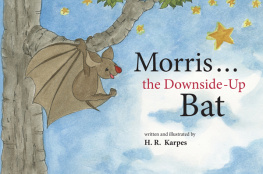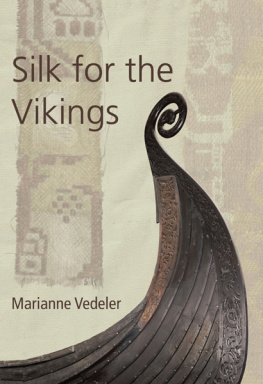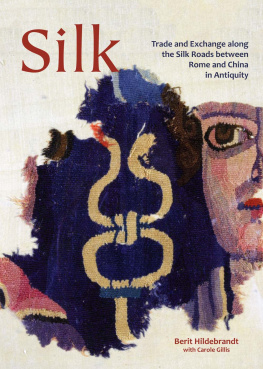R. Morris - A Razor Wrapped in Silk
Here you can read online R. Morris - A Razor Wrapped in Silk full text of the book (entire story) in english for free. Download pdf and epub, get meaning, cover and reviews about this ebook. genre: Detective and thriller. Description of the work, (preface) as well as reviews are available. Best literature library LitArk.com created for fans of good reading and offers a wide selection of genres:
Romance novel
Science fiction
Adventure
Detective
Science
History
Home and family
Prose
Art
Politics
Computer
Non-fiction
Religion
Business
Children
Humor
Choose a favorite category and find really read worthwhile books. Enjoy immersion in the world of imagination, feel the emotions of the characters or learn something new for yourself, make an fascinating discovery.

- Book:A Razor Wrapped in Silk
- Author:
- Genre:
- Rating:4 / 5
- Favourites:Add to favourites
- Your mark:
- 80
- 1
- 2
- 3
- 4
- 5
A Razor Wrapped in Silk: summary, description and annotation
We offer to read an annotation, description, summary or preface (depends on what the author of the book "A Razor Wrapped in Silk" wrote himself). If you haven't found the necessary information about the book — write in the comments, we will try to find it.
A Razor Wrapped in Silk — read online for free the complete book (whole text) full work
Below is the text of the book, divided by pages. System saving the place of the last page read, allows you to conveniently read the book "A Razor Wrapped in Silk" online for free, without having to search again every time where you left off. Put a bookmark, and you can go to the page where you finished reading at any time.
Font size:
Interval:
Bookmark:
R. N. Morris
A Razor Wrapped in Silk
I am convinced that hidden in his drawer is a razor, wrapped in silk, like that murderer in Moscow; he too lived
in the same house with his mother and had wrapped a razor in silk to cut a throat with.
From The Idiot by Fyodor Dostoevsky (translation by Henry Carlisle and Olga Andreyev Carlisle)September, 1870
1 The spinners boy
Mitka looked up. He saw the high ceiling of the spinning-shop through a haze of cotton dust scored with countless lines of yarn. The dust was white, like snow but finer. It hung in the hot air, beneath the turning shafts that spanned the workshop and drove the machines. Incessantly moving, yet going nowhere, they held him entranced with a vision of infinity, presented as unrelenting monotony.
He could always taste the dust, always feel it, on him and in him, smothering him. Even in his parched dreams, even in the best of them, when he dreamt of her, and the great feeling took him over even then, she came to him through a shifting white mist and fed him sweetmeats that tasted of cotton. And in those dreams, the throbbing noise that drowned out her tender words was the chiming clatter of the machines.
Was he dreaming now? The thought frightened him into a state of strained alertness.
He was crouched within the great jaws of the spinning mule. The mule itself, the movable frame which carried over a thousand spindles, or so Mr Ustyantsev claimed, was edging away from the fixed part of the machine. It drew the unspun rovings of cotton from the creel and stretched the fibres into the finest of prison bars. It was Mitkas job to watch for broken threads and tie up the ends, conspiring in his own imprisonment. Once the mule had completed its outward carriage, it would begin its return, walked home by Mr Ustyantsev as it wound in the threads it had spun. Mitka knew of children who, in falling asleep, had been caught in its inexorable bite, unseen by the machine operator. If they were lucky theyd lose a finger, ripped off in the blink of an eye. The hobgoblins and ogres of fairytales were nothing compared to the lurking terrors of the factory. His heart raced, like the bobbins on a double-speeder. He thought of Anya, the girl who had fallen into the driving belt. It had carried her round three times before they had managed to get her out, her screams mingling with the routine screech of metal. In the English foremans arms, her body hung as limp as a sack of rags. Word got round later that every bone in her body had been broken. Mitka could never forgive Beck for the look on his face as he held her: a look devoid of pity or grief, showing only the contempt of an inconvenienced man. Anya had been ten years old, the same age as Mitka, and a foundling like him. This had been enough to bind them together, like two weak and ragged threads. Their friendship had not developed much beyond silent sympathetic glances and the occasional stolen word. But her eyes had always been the first he sought in the sting of any injustice.
Mitka craned his neck back to scan the taut threads over his head. Every muscle was tense and aching. He winced sharply as a spasm of cramp gripped his right calf. He longed to stand and straighten the leg, but couldnt, not yet at least. He closed his eyes over the pain. It could only have been for a moment, but it was a moment in which he allowed himself to luxuriate in the dangerous dream of lying stretched out on the hard floor beneath the cotton canopy.
He opened his eyes in panic. To his relief, he was still locked in his tight little squat. A thread had snapped while he had dozed. The loose ends trailed on the floor, one drawn away from him by the moving mule, the other gathering into a loose spiral as the rollers spewed more thread. Mitka moved quickly, tying the ends with dextrous fingers, taking secret pride in the speed with which he accomplished the task.
There was a clank as the mule reached the end of its track, followed by a whirring and grinding of gears as the machine adjusted to the next phase of the operation. Mitka grabbed the hand brush and swept the floor ahead of him as he retreated.
Out in the open, in the seemingly limitless expanse of the spinning-shop, there was just time to stand and stretch, to roll his shoulders and kick the cramp out of his leg, before he had to run round and duck into the now opening jaws of the machine opposite.
Bent into position once more, Mitka looked up at the haze of cotton dust scored with countless lines.
*
The steam whistles blast announced the end of the shift. Mitka scurried out of his daily prison, as fast as a venting of pressure.
He came out into a choking fog that seemed, in the first shock, to be an extension of the cotton haze he had just escaped. But the air was cooler here, and the particles it bore, black and hard-grained. In the spinning-shop they kept the air hot as well as humid, for the sake of the cotton. The change of temperature set his teeth chattering. He had on a cap but no coat; was still dressed only in the clothes he worked in, the ragged cotton shirt, and drill trousers tucked into his boots.
Night was coming on and the lamps in the yard were lit. The dark, soot-laden fog absorbed any light it could and held it in a stifled glow.
It was unusually quiet for the end of a shift: disembodied footsteps, but no voices, apart from an occasional murmur or exhausted sigh. It was as if the fog sealed each individual worker off in a wad of solitude.
But the fog served Mitkas purposes. It would make it easier to slip past Granny Kvasova, who was even now waiting to shepherd the foundling children into the apprentice house. The thought of a place by the stove and a share of the communal bowl tempted him. But once inside the house there would be no escape. The door was locked on the children as soon as they stepped through it. He would miss that evenings class. He would not see her.
He called her Mother. All the children called her Mother, even the ones who had mothers of their own. Even the adult workers who attended the Free School called her Little Mother. She was the sweetest, kindest, most beautiful mother any of them could imagine.
She fed them dreams and hope, food for their souls not their bellies. He would gladly forego Granny Kvasovas cabbage soup for a smile from his Nourishing Mother. It was her image that sustained him beneath the immense veil of threads each day; the thought that he would see her, sit at her feet with the others as she told them the story of The Dead Princess and the Seven Knights, or taught them the words to Kalinka.
Mitka felt the towering presence of the Nevsky Cotton-Spinning Factory behind him. He did not look back. In the fog, its gigantic mass would be transformed into a vague, premonitory shadow of itself. But he knew that the blackened bricks were there, the filthy chimneys, the grimy windows, and he could not bear to turn his face in their direction, to acknowledge their hold over him with even a glance. Hated as it was, it pulled at him, like a weight of sorrow to which he was chained. He wanted to run from it.
Suddenly a soft orb of light appeared ahead of him, swaying high in the air. Someone had raised a lantern on a pole. He could see the flattened, drained form of Granny Kvasova and hear her croaking shout: Children, this way! Children! Grannys here! In his exhaustion, he almost walked towards the summoning, drawn by habit, like a mechanised part returning to its housing. But now the fog was on his side. It gave him time to think, or at least to remember the Mother waiting for him in the schoolroom.
He gave the lantern a wide berth and left the old womans cries behind.
A whiff of pipe smoke conjured forth the image of Uncle Pyotr, the gatekeeper. Portly and sly, he pretended to be a friend to the children, bestowing winks as if they were sugar crystals. But there was something about his eyes that Mitka never trusted, a cold watchfulness that belied his empty joviality. He had them call him uncle, though he was no more their uncle than the old Kvasova woman was their granny. The mans wheezing cough and high, almost falsetto voice sounded startlingly close, signalling both the way out and a final trap. If Uncle Pyotr caught him he was bound to hand him over to Granny Kvasova. Mitka would then have to plead to be allowed to go to school. She would inevitably deny him, while Uncle Pyotr chuckled as if it was all a joke. No doubt she would use the fog as an excuse, but the real reason would be because she sensed how much he wanted it. He had heard her arguments before, the same ones, more or less, retailed by Mr Ustyantsev: It will do you no good, filling your head with geography and nonsense. All you need to learn, young lad, is your place.
Font size:
Interval:
Bookmark:
Similar books «A Razor Wrapped in Silk»
Look at similar books to A Razor Wrapped in Silk. We have selected literature similar in name and meaning in the hope of providing readers with more options to find new, interesting, not yet read works.
Discussion, reviews of the book A Razor Wrapped in Silk and just readers' own opinions. Leave your comments, write what you think about the work, its meaning or the main characters. Specify what exactly you liked and what you didn't like, and why you think so.









